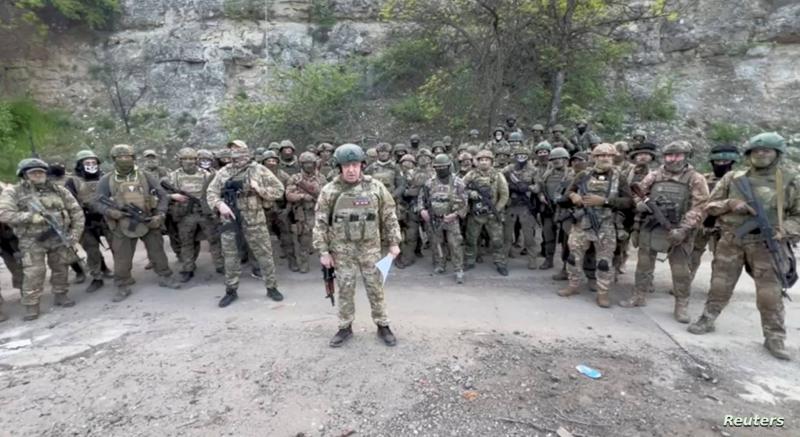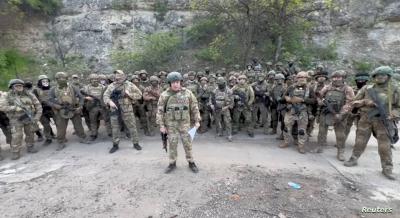The uprising of the Russian private military group Wagner poses a diplomatic dilemma for Mali and the Central African Republic, given the increasingly pivotal role that this group plays in long-standing internal conflicts. As Wagner fighters moved towards Moscow after seizing a southern city late Friday, spokespersons for the governments of Mali and the Central African Republic refused to comment on the unrest and its impact on their countries' security strategies against extremist groups.
Both countries have sought to strengthen ties with Russia and obtain military support to combat militants, previously stating that "their military cooperation agreements were with Russia, not Wagner." A political analyst in Mali, Bissira Doumbia, noted that "Wagner's presence in Mali is backed by the Kremlin, and if Wagner has a dispute with the Kremlin, Mali will naturally suffer the repercussions on the security front."
In Mali, where military personnel seized power in coups in 2020 and 2021, the state has been fighting against Islamist militants for years, asserting that the Russian forces present on its territory are not Wagner mercenaries but trainers assisting local forces with equipment purchased by the country from Russia. Continued Wagner presence in Mali amid the ongoing Russian rebellion could pose a problem for Bamako's relations with Moscow, which promised last year to send shipments of fuel, fertilizer, and food valued at approximately $100 million to Mali.
Ivan Gishaawa, a lecturer at the Brussels School of International Studies, indicated that "the specific consequences for Mali largely depend on factors that are still largely unknown, such as Wagner's organizational autonomy and its leadership hierarchy, and of course whether tensions escalate between Putin and Wagner."
The conflict in Russia could have significant implications for the Central African Republic, where hundreds of Russian personnel, including many Wagner fighters, have been assisting the government in fighting various rebel movements since 2018.
The ties between the Central African Republic and Mali with Russia have increased in recent years, as the Kremlin seeks to gain greater influence in French-speaking African countries, which has provoked discontent in France, the former colonial power, facing anti-French protests in the region amid deteriorating relations with several West African governments.
In February, French President Emmanuel Macron described the deployment of Wagner forces in Africa as "life insurance for failed regimes in Africa," stating it would only lead to the spread of misery. The suspension of Wagner's operations in Africa could affect the financial situation of the group. In October, the United States accused the private military group of exploiting natural resources in the Central African Republic, Mali, and elsewhere to finance the fighting in Ukraine.




